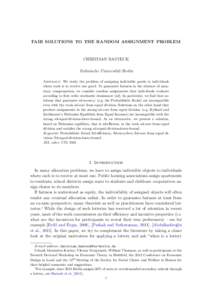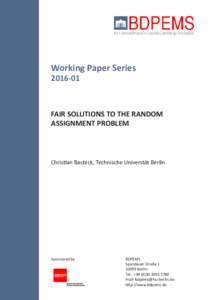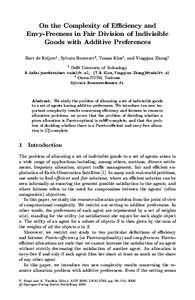<--- Back to Details
| First Page | Document Content | |
|---|---|---|
 Date: 2013-07-18 14:29:50Routing algorithms Radio resource management Fair division Fairness measure Max-min fairness Mathematical optimization Envy-freeness Pareto efficiency Proportionally fair Scheduling |
Add to Reading List |
 Multi-Resource Allocation: Fairness-Efficiency Tradeoffs in a Unifying Framework Carlee Joe-Wong∗ , Soumya Sen∗ , Tian Lan† , Mung Chiang∗ ∗ Department † Department
Multi-Resource Allocation: Fairness-Efficiency Tradeoffs in a Unifying Framework Carlee Joe-Wong∗ , Soumya Sen∗ , Tian Lan† , Mung Chiang∗ ∗ Department † Department

